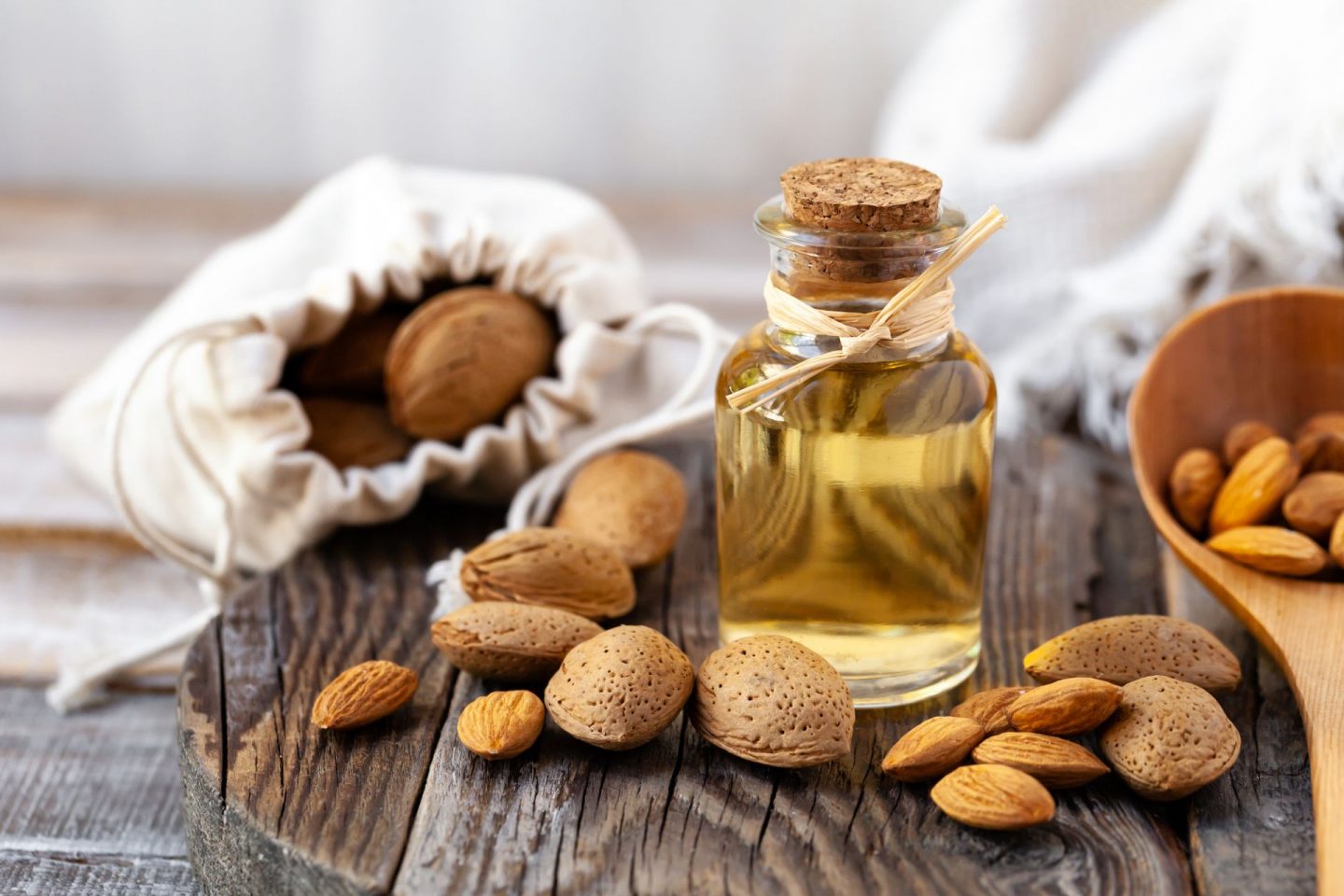
Sweet Almond Oil and How It Helps with Aging
What is Sweet Almond Oil?
Sweet almond oil, scientifically known as Prunus amygdalus, is a natural oil that is extracted from the kernels of sweet almonds. It is a versatile and widely used oil in skincare, haircare, and aromatherapy due to its many beneficial properties.
Here are some key characteristics and uses of sweet almond oil:
- Nutrient-Rich: Sweet almond oil is rich in essential nutrients, including vitamins (such as vitamin E and vitamin A), minerals, and healthy fats. These components contribute to its nourishing and moisturizing qualities.
- Emollient: It has excellent emollient properties, making it effective in softening and smoothing the skin. This makes it suitable for dry, rough, or sensitive skin types.
- Hydrating: Sweet almond oil is a natural moisturizer that helps to lock in moisture, keeping the skin well-hydrated and preventing dryness.
- Anti-Inflammatory: It contains anti-inflammatory compounds, which can help soothe irritated or inflamed skin, making it suitable for individuals with skin conditions like eczema or dermatitis.
- Improves Complexion: Regular use of sweet almond oil can help improve the overall complexion by reducing redness, blemishes, and discoloration. It can even out skin tone and promote a healthy, radiant glow.
- Reduces Signs of Aging: Sweet almond oil supports collagen production, which is essential for maintaining skin elasticity. This can help reduce the appearance of fine lines and wrinkles, promoting a more youthful look.
- Hair Care: Sweet almond oil is used in haircare products to nourish and condition the hair. It can add shine, reduce frizz, and support overall hair health.
- Carrier Oil: In aromatherapy and massage, sweet almond oil is often used as a carrier oil to dilute essential oils before applying them to the skin. It's gentle and well-tolerated by most people.
- Culinary Use: In addition to its cosmetic applications, sweet almond oil is used in cooking. It has a mild, nutty flavor and can be used in salad dressings, as a cooking oil, or in baking.
How Sweet Almond Oil help with aging:
Sweet almond oil offers several benefits that can help combat the signs of aging. It’s rich in triglycerides and fatty acids, Sweet almond oil’s emollient properties help moisturize the skin, reduce acne, improve skin tone, control oil, and reduce inflammation.
Here's how sweet almond oil can contribute to an anti-aging skincare routine:
- Moisturization: One of the key factors in maintaining youthful skin is proper hydration. Sweet almond oil is a natural emollient, which means it helps to lock in moisture. This keeps the skin well-hydrated, preventing dryness and maintaining a plump, smooth complexion.
- Rich in Antioxidants: Sweet almond oil is packed with antioxidants, including vitamin E. Antioxidants combat free radicals, which can accelerate the aging process by damaging skin cells. Sweet almond oil helps protect the skin from oxidative stress, reducing the appearance of fine lines and wrinkles.
- Skin Repair: The vitamins and nutrients in sweet almond oil support the skin's natural repair and regeneration processes. This can help reduce the visibility of age-related skin imperfections, such as scars and dark spots.
- Improves Skin Elasticity: Sweet almond oil promotes collagen production, a vital protein responsible for maintaining the skin's elasticity and firmness. Collagen production tends to decrease with age, leading to sagging skin. By supporting collagen synthesis, sweet almond oil can help address this issue.
- Soothes Irritation: Aging skin can become more sensitive and prone to redness or irritation. Sweet almond oil's anti-inflammatory properties help soothe and calm the skin, reducing discomfort and redness.
- Brightens Skin: Regular use of sweet almond oil can help even out the complexion, reduce discoloration, and promote a brighter, more youthful appearance.






